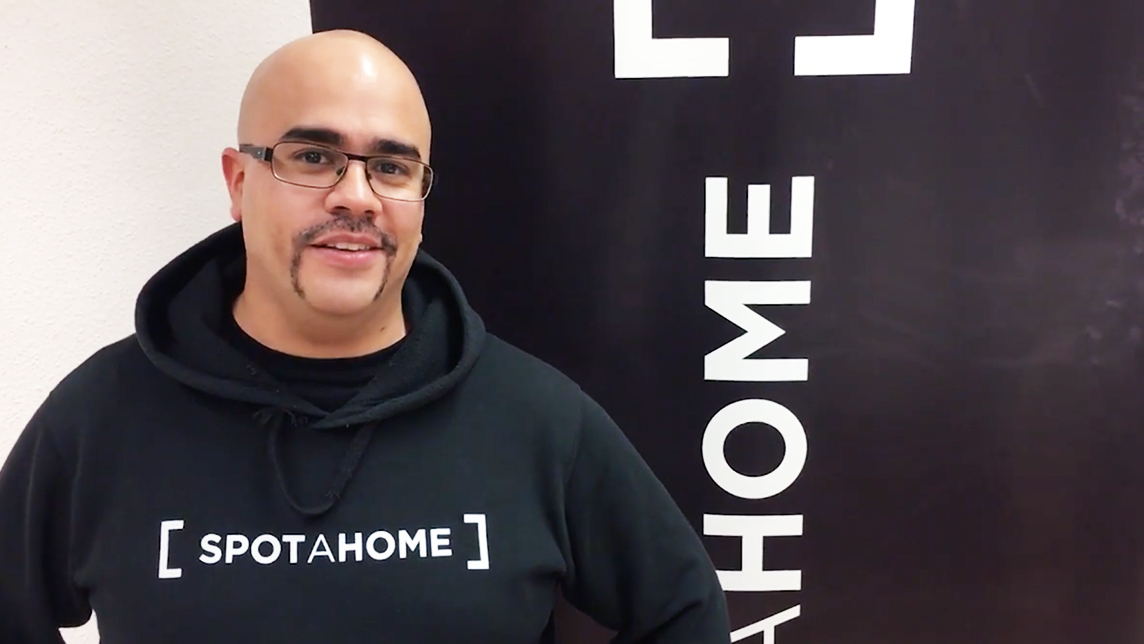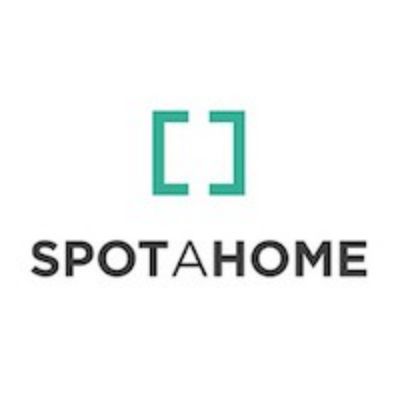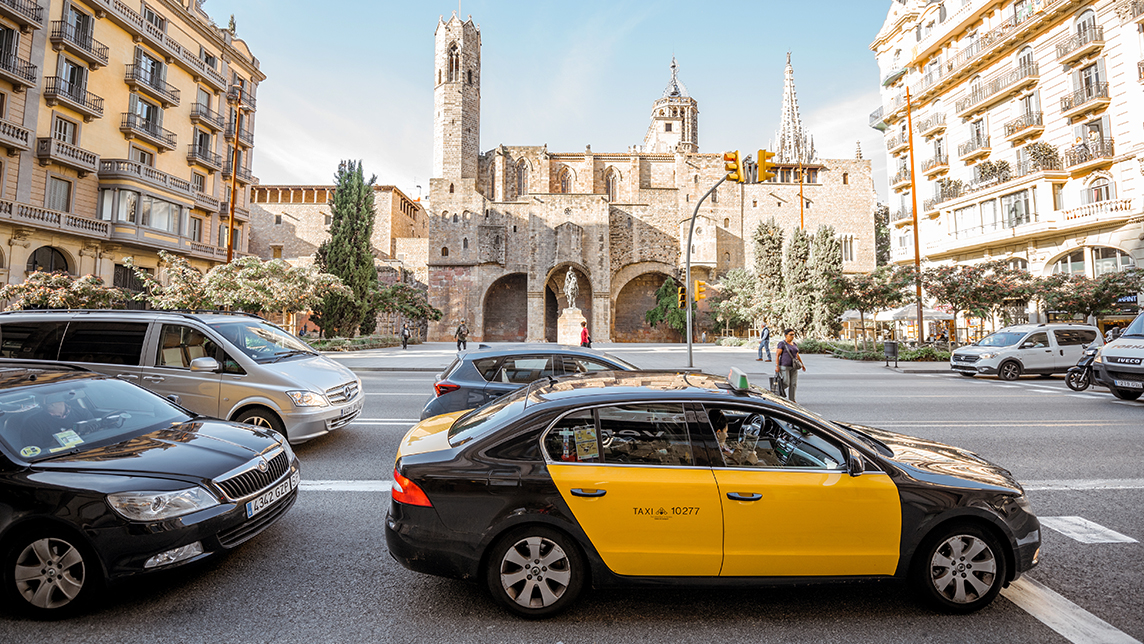Founded in 2014, Spanish proptech startup Spotahome now offers medium- and long-term rentals in 10 cities across seven European countries, moving over US$200 million worth of transactions as of end-2018. It has raised US$72 million in funding so far, including a US$40 million Series B round led by Kleiner Perkins, its first investment in Spain.
In a wide-ranging interview, the company’s CTO and co-founder Bryan McEire talks to CompassList about Spotahome’s expansion focus – including a new office in London and hiring 200 more IT engineers this year – their business model, milestones and challenges to date, and the pain of having to sell his parachute to help fund the company during its bootstrap days.
This interview was conducted in Spanish and translated by CompassList. It has been edited for length and clarity.
Spotahome started in 2014. What are your milestones to date?
We launched the website on March 4, 2014. We had been working on it for a month and we planned to launch it in early April. But we detected an opportunity to test the business with new students coming to the IE Business School at the beginning of March. So, we launched the website with a lot less functionalities.
Almost nothing worked and we only had nine properties. You could not pay online. In fact, when you clicked the “book now” button – the website was only in English at that time – you got a pop-up saying, “please send an email to reservas@spotahome.com.”
But thanks to that, at 3 o'clock, that very same day, we made our first transaction. The tenant was a Japanese who rented for 13 months, and what struck us as unusual was that he was already in Spain, not in Japan. This made us see that there was also a local market for our product. In addition, it helped us validate our business model and have something to meet the investors with.
Other milestones have been the investment rounds: a first “family and friends" round, and then Series A and B.
Another milestone was the 2018 acquisition of Erasmusu [a student lodging website with 70,000 property listings]. Also, winning the South Summit in 2016, which was a recognition from the outside world that the team could see very clearly. Suddenly, we realized that we were creating an impact. And that was a very sweet moment for the company, which was captured on video – the moment the whole team was jumping at the awards ceremony. And when we decided to leave all our jobs and bet on Spotahome, that was a decisive moment too.
Moving to our office was also a milestone. We started in the living rooms of our homes, then in co-working spaces, and now we are in our own office where we have the space and capacity to grow, in the center of Madrid.
And a year ago, we launched our mobile application, which has been very well received.
What made you and your co-founders create Spotahome?
[CEO Alejandro] Artacho and I had started a similar company in 2011, which sought to make the world smaller. But instead dealing with housing, it aimed to find work and talent around the world, matching candidates with companies. One of the related verticals was online accommodation.
We had also faced the problem of moving and having to find accommodation elsewhere, and not knowing very well where to begin. All the partners have lived outside of our hometowns, during Erasmus [a European study abroad program] and working abroad
One of our partners, Bruno [Bianchi], is also a homeowner who has rented out properties, so he is very familiar with that side of the business. Some of us have also worked in real estate, and at that time saw the opportunity in digitizing the market. Especially moving the offline transactions online; through a single, global, transparent platform facilitating owners and tenants.
What is Spotahome’s business model?
We have a transactional business model. What we charge is a percentage of the total volume of the transaction, both to the tenant, and to the owner. Still, that is much cheaper than a month's rent, which is what any real estate agency charges. And we make the transaction quicker and easier.
We send home checkers to the properties to check them and get a lot of multimedia material: onsite videos, photographs, floor plans, 360-degree shots. All that information goes into the online listings, which represent the properties in the most possible transparent, faithful way.
That changes the business model a lot – and increases the costs – compared with a classified ads site where anyone can upload the photos, but when you arrive at the property, you realize the flat is in the basement and nobody had told you so.
That is the kind of surprises we try to avoid. We want to be transparent so that what you find when you arrive is what you saw on Spotahome.
How do you see Spotahome disrupting the traditional rental/real estate market?
The real estate market is a very traditional one. It moves huge amounts of money, but digital penetration remains low. Within this market exist many verticals. Rentals of medium to long duration, where we are focused now, is one of them.
I see Spotahome growing and positioning in the rentals vertical as a platform that has managed to digitize the segment, giving the market transparency and immediacy. No one should have to compromise when it comes to their living space. You should look for the space that you want, as best you can.
Beyond that, all kinds of disruptions are possible. Take just the example of removals. That seems simple, but it is not. Each client is different. That in itself already opens the door to artificial intelligence, and you can really do wonders there.
It is about accompanying the client through his entire experience, from when he needs to find a new house, to when he moves to the next one. In addition, the real estate market covers everything from homes to offices.
What was your background in tech and entrepreneurship before you co-founded Spotahome?
When I was 14 years old, I co-founded a free software association in Cantabria that operated in northern Spain. We were four founders and had several thousand users. We gave talks and helped companies make the transition from using proprietary software to free software.
In 2011, Artacho and I worked on the employment startup that I referred to earlier on. We did quite well in acquiring users – thousands of fully qualified professionals in just a few weeks. We also had interested companies. But the truth is that we were very young then, and we did not know how to raise capital. However, it was a great nine months during which we learned a lot. Artacho was also studying for his master’s then and I was working at Mapfre [a Spanish insurer], and at night, we both worked on the startup. The company was incubated at IE Business School, where we would work till four in the morning, because they had to close the premises for cleaning.

Could you introduce us to the other co-founders?
Artacho and I met 14 or 15 years ago, here in Madrid. He is from Estepona [in southern Spain] and studied law and business administration at Comillas Pontifical University ICAI-ICADE. We were friends living in the same university residence and we liked the same things (rock and metal music, superheroes, history and soundtracks). We got along very well and we were always organizing things.
Later, we became roommates. Then Artacho went to China, and I to Brussels. When he came back from China, we set up that first startup. Artacho had started two or three import/export-related businesses while in China. They were not digital, but that gave him a lot of experience.
Bruno, a lawyer by training, is from Argentina. He has an incredible story. He wanted to know the world and ended up in a place totally opposite from Argentina: working in Denmark. Then he traveled throughout Europe and had different working experiences, among which, he had worked at an olive-oil machinery manufacturer in Andalusia and helped it expand to five countries. He speaks five languages and is strong at logistics and operations, which is why he was a good addition to the club.
Hugo [Monteiro] is a former co-worker. Like me, he's a computer scientist, and he's also started projects on his own. He also worked as freelancer and has taught many training cycles. Hugo and I are engineers.
Could you tell us about your difficult times and challenges as a startup?
Raising the first round of funding was very difficult. In fact, when we started, the ecosystem in Spain was much slower and less familiar with startup financing than what we see now. It was hard to make yourself heard, especially with a business model as disruptive as ours; there was nothing like it in the market. People did not understand very well what we were doing, being used to classified ads. We had to break through that mental barrier. That's why I said that getting funding was very complicated, despite having the proven results and traction.
As for the challenges, launching that mobile app in less than a month and with just one engineer was a challenge. Launching the first website 30 days ahead of schedule and getting that first sale was a challenge, too.
Another challenge has been scaling the team, especially the technical team, because it is difficult to hire engineers. There are not as many IT engineers in the market as needed. We started with two engineers in Spotahome; now we are 70 staff between technology and product (engineers). Plus 200 more for the other positions; and the home checkers, who are freelance photographers who charge for their work. And we still want to hire 200 more engineers between Madrid and London, so this is also going to be a challenge.
You are opening an office in London. Why?
Currently, we only have our office in Madrid, as we like to have everything centralized. The UK office is really a hub, mainly for expanding our capacity for finding talent. We are a global company; our staff include more than 30 nationalities here in our Madrid office, and some of them don't even speak Spanish. And we want to keep going in that direction. London makes it easier for us to attract people from all over the world.
What are Spotahome’s sales numbers?
In these four years, we have closed US$120 million in rental agreements.
How much have you personally invested in the business? After the US$40 million Series B funding round led by Kleiner Perkins, are you planning to raise more financing?
I invested everything I had, all my savings. At the time I was a hobby parachutist, and to co-found Spotahome, I even had to sell my parachute. It was painful. I had to live in the homes of friends for a while, because there was no other way. It was complicated. Gratifying and fun, but complicated.
In addition to our own initial funding, we have raised a total of US$72 million, including funds from family and friends, Series A and Series B. And we are always open to raising money to continue growing.
Are there other positive effects of the Kleiner Perkins investment, besides financial?
It is a very professional fund, one of the oldest in the world. It has invested in Europe a few times, though never in Spain; and it came to us. Having a Silicon Valley fund with us gives Spotahome a new perspective of the problems and solutions, and how the company can grow, which helps a lot. Our relationship with them has been very good from the beginning. We have very clear numbers, we are constantly communicating and the execution is good. In that sense, I would say they are almost more like partners than investors.
We have a very good relationship with our other investors too. Many of them are entrepreneurs, who created, scaled and sold companies. They understand very well what we are going through and how difficult it is to start, to grow and move on. They help us a lot, giving us advice, contacts and knowledge.
Some investors come to our office quite often. We get the whole team together on the 6th floor, our canteen, and people ask them open questions about their problems. They give us a lot of advice on how they did their businesses before. It is very important to be open to outside knowledge.
What kind of customers are you targeting?
As a platform, we want to completely digitize the real estate market, and that affects anyone who has a need within that market. However, if we had to determine the main types of clients we have, they would be students, postgraduate students and professionals age up to 40–45 years old who move internationally.
Who are your competitors?
I do not see real estate agencies as competitors. The classified ads do not fit into our profile, either. We are a real estate company that uses a totally digital platform. We do not have competitors in the sense of companies that do the same work as us, although there are companies in Europe that may be doing something similar. That was in the case of Erasmusu, for example, today part of the Spotahome Group. We do not focus on our competition, because that way we would be missing what is really important – our customer.
In Europe, there is no online player who goes visiting rental properties to check them, except Spotahome. It is an investment that we make to give the best possible service. If we get the best experience for our client, he or she will return and the investment would have been worth it. Our “haste” to grow is not because someone comes snapping at the back of our heels, it is because we want to be in the whole world, we want to change the real estate market.
Could you elaborate on the company’s longer-term plans and outlook?
Currently, we are in a very important phase: we are expanding the executive team. For example, we have hired a CPO with experience in Hello Fresh and Amazon, and more than 20 years of accumulated experience in the world of technology and product. We are raising the standards, an ongoing process.
In terms of international expansion, I have no news to give you for now. But I can tell you that we are making a very strong investment in technology, because we want to offer the best possible product and experience to our customers. Our biggest plan now is to scale, for which we will be hiring 200 engineers this year, between Madrid and London.
Will we see you in Asia?
Asia is a very interesting market. Yes, I think so, but, with time.
What technologies do you use in your proptech platform?
We have a fairly large platform today. It is a distributed platform oriented to micro-services. The back end and the front end are completely separate. For the databases, we use mainly MongoDB and MySQL. Each service is also separate. The backend uses php, Scala and Python mostly, and in the front end we use log js, Javascript and React.
As for our IT infrastructure, we are in Amazon Web Services (AWS) and Google (Google Cloud Platform) and we use Kubernetes. We have everything automated, with continuous integration and continuance delivery.
What are the advantages of having a separate front and back end?
We can create an independent service layer that offers a number or series of services to the whole of Spotahome; and then, with the front end, we can decide which strategy to use in each case.
This has advantages for customers. For example, if we have different mobile applications or websites, each may house exclusive content catered to specific types of client needs.
This means we can give a much more personalized experience and we can work on a product strategy totally oriented to that client, without affecting other areas of the platform. Separating these things helps us to have more flexibility.













